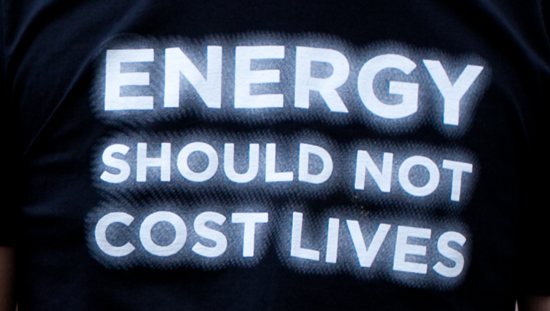 Japan’s earthquake, tsunami and nuclear power plant disaster have dominated headlines around the world since news broke last Friday. Thousands of people have died in Japan over the past few days, and many more are at risk of radiation sickness from the ongoing nuclear power plant meltdown. My heart aches for all of the families in Japan who are suffering this week.
Japan’s earthquake, tsunami and nuclear power plant disaster have dominated headlines around the world since news broke last Friday. Thousands of people have died in Japan over the past few days, and many more are at risk of radiation sickness from the ongoing nuclear power plant meltdown. My heart aches for all of the families in Japan who are suffering this week.
Of the hundreds of news reports covering these one-after-another disasters, one Bloomberg article caught my eye with a very interesting question: how will Japan’s nuclear meltdown impact the future of energy?
As the nuclear meltdown in Japan continues, the conversation about the impact this disaster will have on our energy choices is an interesting one. There seem to be two competing answers: expand the use of coal as a clear alternative to nuclear power, or push for clean energy, like wind and solar, that does not explode, spill or meltdown. Which would you choose?
Apparently, two of the biggest coal mining companies in the world, Siberian Coal Energy Co. and OAO Mechel, have responded to Japan’s energy crisis with a plan to increase coal shipments to Japan by 3 million to 4 million metric tons a year. The stock market also seems to point to coal as a good alternative to nuclear, at least at this moment in the news cycle. The Wall Street Journal reported that coal companies including Peabody Energy, Consol Energy, Alpha Natural Resources, Cloud Peak Energy and International Coal Group are trading higher since the nuclear plant explosions.
However, the New York Times is reporting that solar and wind stocks are surging amidst nuclear fears as well. The demand for renewable energy is picking up. With Bloomberg reporting that: “Equipment makers for solar and wind energy climbed as much as 27 percent, rallying for a second day on speculation that clean energy will benefit in the aftermath of Japan’s nuclear-reactor accident.”
It is disgusting to think that any company, dirty energy or clean, would “benefit” from this disaster. However, it is also horrifying to imagine that as a global community we would not heed the warnings that disasters like the BP oil spill and this week’s nuclear meltdown are sounding.
As country’s like Germany and Switzerland suspend plans for nuclear plants and fear over this unstable fuel justifiably surges around the globe, we have two paths for our energy future: to stay the course, pumping our countries full of coal, oil and nuclear energy, or transition to renewable sources of energy like solar and wind.
In my estimation, replacing nuclear energy with energy from burning coal is a foolish path. Coal has a long and shameful history of devastating accidents, including the TVA coal ash spill in December 2008, which dumped 2.6 million cubic yards of fly ash across hundreds of acres just outside Knoxville, Tennessee, and Massey Energy’s Upper Big Branch mine explosion in April of 2010, which killed 29 miners. These are just two recent examples from the United States. It would take a much longer blog post to cite all the recent accidents at coal plants and mines around the world.
The debate around the future of nuclear energy will surely rage for many months. It is critical that those of us who have been watching the disaster in Japan unfold not let pundits, politicians and journalists decide to replace one dangerous power source for another. Energy shouldn’t cost lives.